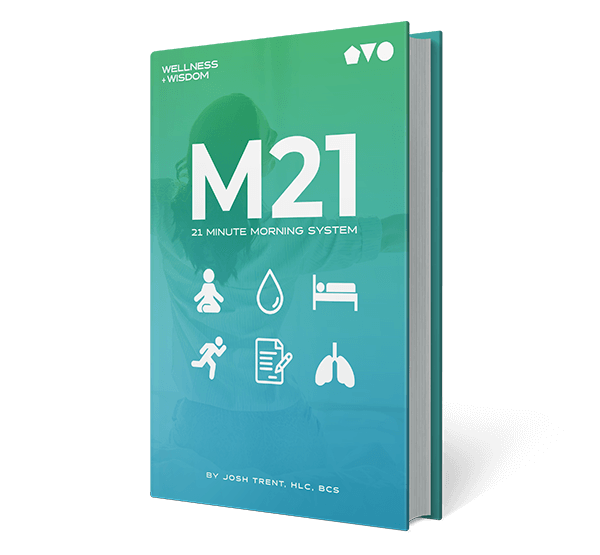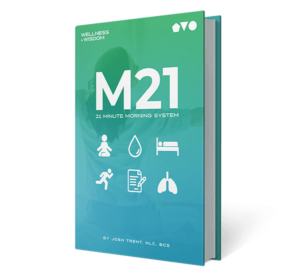 Fasting can be traced all the way back to the 5th century, when Hippocrates gave food advice on controlling what you eat. But the trend has come back around, and this time, there are a number of studies showing the physical and mental benefits of fasting on our bodies.
Fasting can be traced all the way back to the 5th century, when Hippocrates gave food advice on controlling what you eat. But the trend has come back around, and this time, there are a number of studies showing the physical and mental benefits of fasting on our bodies.
Some of the more obvious benefits are physical ones. But since the pandemic has uncovered themes of depression, anxiety, and stress among all of us, it’s worth looking at how fasting can affect our minds.
Table of Contents
How Intermittent Fasting Works?
It’s worth looking at how fasting impacts our bodies to understand how we derive the following health benefits. Intermittent fasting follows a strict eating schedule that only allows for eating food during a specific window. One of the most common ones is 16/8. !6 hours fasting and 8 hours of being able to eat. Now, controlling what you eat during that time is important.
When your body is fasting, it kicks your metabolism into a different gear. Instead of just burning off the food you last ate, it dips into a fat-burning mode. This has a positive effect on our cholesterol and blood sugars. Ultimately reducing the risk of disease.
But this only works if you are careful with what you eat during your non-fasting window. That’s why tracking your calories in and calories out is critical to the success of the diet. Using something like the online intermittent fasting tracker from reputable companies can help you stay accountable.
Benefits of Fasting for Mental Health
 So, what does that have to do with our minds? Well, let’s take a look.
So, what does that have to do with our minds? Well, let’s take a look.
Mental Clarity
A lot of fasters agree once they get past the initial adjustment period, they feel a lot less foggy and have mental clarity. The reason for this is likely due to the fact that our bloodstreams are cleaner and free of toxins.
Our brains spend less time and energy digesting our food and more time on other things. When we eat a lot of food, particularly unnatural and processed food, our bodies spend a great deal of energy breaking it down and processing it.
Self-Esteem Boost From Willpower
The correlation between willpower and confidence is not unknown. Naturally, when we feel like we are in control of our decisions, we can feel more confident. Intermittent fasting, regardless of which approach you choose, requires a certain level of willpower to stay disciplined.
Improved Mood
Fasting has a direct impact on our cortisol levels. Cortisol is produced in our adrenal glands. Cortisol is produced in response to stress. Anxiety and depression, along with stress, are directly impacted by how much cortisol our bodies are producing. Fasting stabilizes this, so we aren’t over or under-producing.
Mindful Eating
By putting a focus on when you eat and a schedule to it, it’s normal for people to be more mindful when they do eat. This is important for controlling your diet and being present. Without schedules, we can often overeat or not appreciate the types of foods we are putting into our bodies.
Potential Symptoms to Be Aware Of For Beginners
The absolute opposite of the mental benefits can happen when someone starts fasting. It’s normal for our bodies to have a few days to adjust where our moods can actually fluctuate towards the negative side. Our bodies are used to craving sugar and fast. When we take this away, it can create a temporary low while it cleans out our bloodstream.
If you feel anxious, moody, or experience headaches in the first week. Don’t stress. It’s not fun, but it’s a normal side effect. If these conditions persist, speak to your doctor. If you feel dizzy or faint, pause the fast. It’s also important to understand where your mental health is currently at. If you are someone who experiences S.A.D., consult your doctor about the best approach
Some beginners, or even well-seasoned fasters, will under eat or not hydrate themselves properly. When pairing this with exercise, it can create physical effects that may create harmful effects. Maintaining a well-balanced, healthy diet during the eating window is crucial.
Especially as we age, fasting needs a specific approach. For women, after menopause, meeting with a specialist is incredibly beneficial to learn how properly about intermittent fasting for women over 60.
Where To Start
If it’s your first-time with intermittent fasting, it’s not a bad idea to start by consulting your doctor anyways. They can go over your medical history to ensure it’s safe to do. While intermittent fasting has been said to be a major improvement for those with diabetes, medical professionals know best.
Beginners should start with the most moderate fasts as they let their bodies adjust. Overdoing it right away can lead to crash dieting. The 16/8 is a great place to start. Be sure not to skip meals and stay well hydrated. It is also important not to go crazy during your eight-hour period. Sticking to zero-calorie drinks such as black coffee, tea, and water is the way to go.
By following these tips and tricks, you can take advantage of the mental and physical benefits of fasting. Mental clarity, weight loss, and improved mood, are just a few to name.









